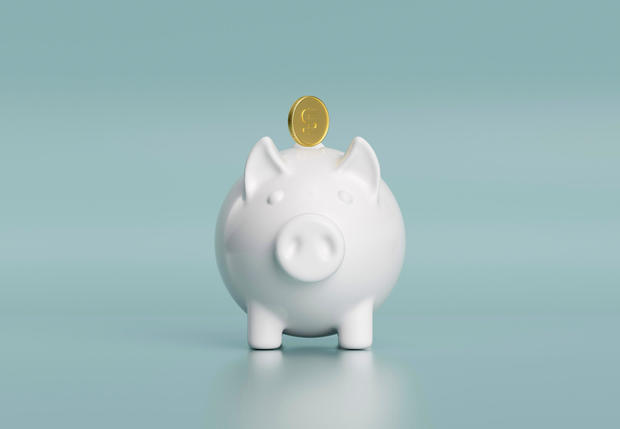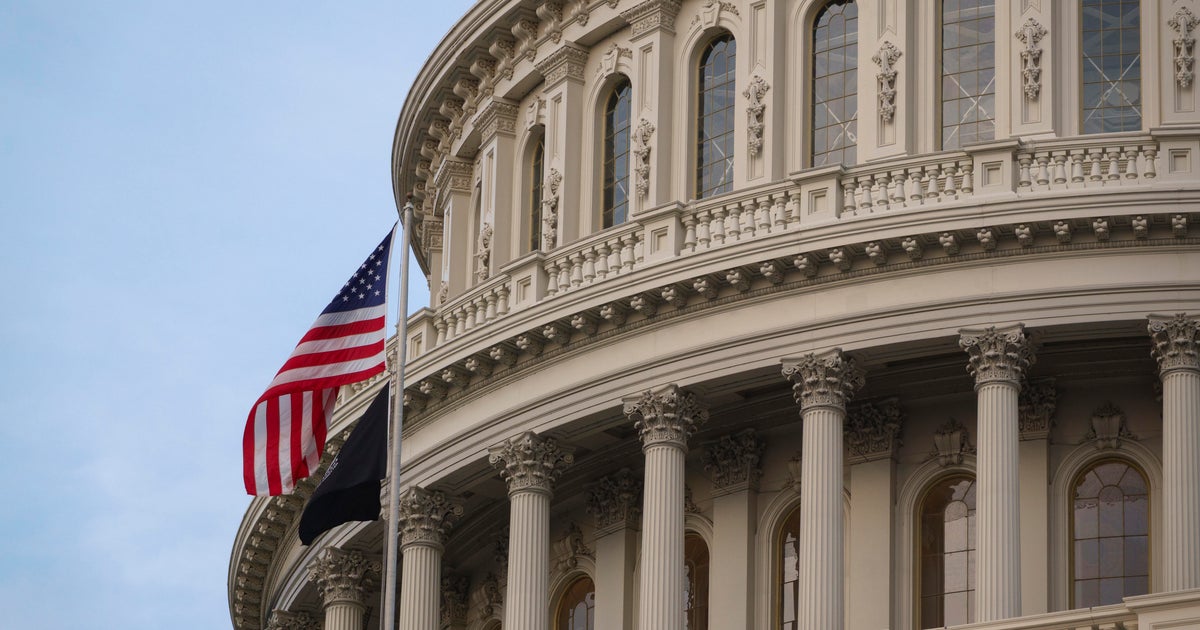5 big signs it's time to open a CD
The world of finance can be unpredictable, but that doesn't mean it's impossible to gain some certainty with your money. One option is to open a certificate of deposit (CD) account, which pays a fixed interest rate in exchange for you keeping your money in that account for the entirety of the CD term.
With the Federal Reserve's recent interest rate hike, CD rates currently offer compelling returns on the money you deposit. While long-term CDs typically have higher yields than short-term ones, but that can vary depending on the economic climate. And, if you shop around for the best CD rates, you can often find long-term and short-term CDs that pay in the ballpark of 5% annual interest. The specifics depend on where you open a CD account and the term length of the CD.
While CDs can still carry risks, such as penalties for early withdrawal, they generally offer a simple way for savers to get a competitive return on their money, especially compared to other types of accounts. But should you open a CD? Here are some signs that it may be time to do so.
Get started now with Discover and lock in your terms from 3 months to 10 years.
5 big signs it's time to open a CD
There are many good reasons to buy CDs, such as to keep up with or outpace inflation while keeping your money relatively safe. If you're looking for a specific sign that now is a good time to open a CD account, consider the following.
You have a fully funded emergency fund
Many personal finance experts suggest that individuals build an emergency fund to cover three to six months' worth of living expenses. This money should generally be liquid so that it's available for emergencies. But if you already have a large enough emergency fund, you might then turn to a less liquid account, like a CD.
"A person that has a fully funded emergency fund for unexpected expenses may consider a CD to get a higher interest rate on excess funds," says Misty Lynch, CFP, owner and CEO of Sound View Financial Advisors. "You need to leave the money in the CD for the entire term in order to get the interest rate that is advertised, making them less liquid than a money market or savings account."
The exception would be a no-penalty CD, which tends to offer slightly lower interest rates in exchange for letting you pull your money out without penalties. Some even use these accounts as their emergency funds, but they still might not be quite as flexible as savings accounts.
You want to lock in a high interest rate
Another sign that it's time to open a CD is that you're worried about interest rate changes and want to guarantee returns.
"CDs offer the option for the investor to lock in a rate of interest for a specified amount of time, whereas savings and money market accounts offer interest rates that fluctuate," says Richard Carter, VP of fixed income at Fidelity.
If you do open a CD, keep in mind that the interest rate is only guaranteed for the designated term. So, while you might get a higher annual percentage yield (APY) on a 1-year vs. 5-year CD at the moment, it's possible that by the time the 1-year CD matures, rates will be lower.
"There is a risk that once a CD matures it will roll into a new CD at a lower interest rate. This will keep your money locked up for a new period, so it is important to keep track of when a CD matures and close the account if interest rates decline and you want to move the money into a different investment," notes Lynch.
You're wary of investment losses
If you want to earn a competitive return on your money but don't want to lose money, CDs could be a good choice. Stocks might provide higher returns some years, but they can also decline in value.
Likewise, bonds can also fluctuate in price, despite having fixed yields.
"For savers who do not want to subject their money to market risk, a CD may be preferable to a bond, which could lose money. Typically, bonds are traditionally low risk, but since bond prices fall when interest rates rise, bondholders can lose money in their investments," says Lynch.
That said, CDs do carry the risk of not keeping up with inflation, she adds.
But one advantage of CDs compared to other types of fixed income is that bank CDs, along with most brokered CDs, fall under the protection of the Federal Deposit Insurance Corporation (FDIC).
"While CDs are federally insured within limits, bonds and other assets in a brokerage account are not," says Carter.
"Instead, the Securities Investor Protection Corporation (SIPC) is a nonprofit organization that protects stocks, bonds, and other securities in case a brokerage firm goes bankrupt and assets are missing," he explains. "SIPC is not a governmental agency and does not cover investment losses due to market fluctuation."
Ready to get started? Learn what Discover offers and lock in your terms from 3 months to 10 years.
You want to meet savings goals
If you're having trouble sticking to your savings goals, that could be a sign to open a CD. Rather than keeping the money easily accessible in a savings account, which you might then spend on an impulse, the less liquid nature of CDs can work to your advantage.
"When you purchase a CD, your funds are tied up in that contract for a certain period of time, otherwise you will likely be charged an early withdrawal fee," says Brian Ream, CFP, managing principal at CliftonLarsonAllen. "This can be a positive and force discipline in your spending and saving, knowing that these funds are tied up."
Find out what Discover can offer you and lock in your terms from 3 months to 10 years.
You want a straightforward investment
Lastly, if you want to put your money into a vehicle that's not too complicated and has predictability, then that could mean you're ready to open a CD.
"CDs are very certain. You go to the bank, and they will tell you the exact time period of the term, and you will know exactly what your interest payment will be each month," says Ream.
And if you're planning for a particular goal, then putting money into a CD can guarantee you'll receive a designated amount at a set time in the future.
You can put "funds toward a future investment, such as college, with full certainty of the amount you will have available at that date," says Ream.
Plus, CDs can be more approachable to some people.
"Investing in the market can be more intimidating, foreign, and complex to the average investor, whereas CDs are more comfortable, given you can easily walk into your bank and buy a CD," says Ream. "It's a clean transaction compared to the fixed-income market. Confusion in this instance usually translates to anxiety, which can be a deterrent."
The bottom line
If you've noticed any of these signs, then you might be in a good position to open a CD. The process is essentially the same as opening a checking or savings account, though you'll want to be sure you understand the details of the CD before depositing money.
Keep in mind that you don't have to put all your savings there. Instead, you might use CDs as part of your overall portfolio, which could include a mix of stocks, bonds, CDs, and cash, for instance. And if you do decide to open a CD, be sure to compare accounts to see where you can get the best rates and terms.




